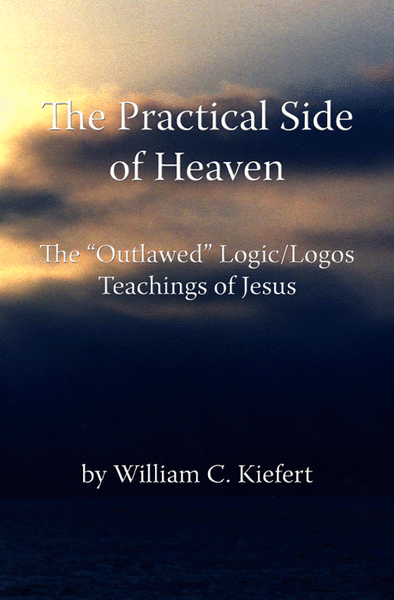
Learn more about The Practical Side of Heaven
Copyright William C. Kiefert. All Rights Reserved.
The Practical Side of Heaven: Chapter Two, Part Seventeen: Summary of Judgmental and Nonjudgmental Logic
The power of prayer, meditation, spiritual knowledge, science and our own experiences demonstrate that our thoughts have, within them, the power to create our everyday reality. Prayers, meditation, hypnotism, and the paranormal introduce us to latent creative powers within us. Nonjudgmental logic is the key to unlock those potentials so that everyone might use them on an everyday basis.
In the past, we have not been able to harmonize the judgmental nature of our reasoning mind with the nonjudgmental nature of spiritual values. Even the wisdom of the wisest of us is more often than not at odds with our spiritual values.
Ancient Greek philosophers refer to this dilemma as the paradox of two minds in one head. Others refer to this dilemma as the conflict between mind and heart, spirit and flesh, and/or religion and reason.
Nonjudgmental logic overcomes the discord between mind and spirit. It expands our potentials of reasoning by adding a nonjudgmental method of relating ideas that is in harmony with spiritual values. Traditionally, spiritual values could not be rationalized in the context of the judgmental rules for correct reasoning. Nonjudgmental logic, however, creates a nonjudgmental method of reasoning that supports spiritual values.
Science takes precedence over spiritual enterprises because Science is based on judgmental logic. Recognizing nonjudgmental logic places spiritual truths on the same level as scientific facts. As long as traditional logic is the sacred cow of civilized man, spirituality will continue to be thought of as hocus-pocus. When traditional logic goes hand-in-hand with nonjudgmental, we can anticipate that not only will the hidden dimensions of reality that the new Sciences open to us be better understood, we will also accept that spiritual experiences are logically, and therefore, scientifically explainable. No longer will spiritual organizations be marginalized by the Scientific community — each will consider the other an equal in mankind’s search for himself.
Nonjudgmental logic can be considered the common ground for solving personal and world problems. The need to feed the children, free the oppressed, save the whales, stop the misuse of nuclear materials, and the abuse of political power would disappear if the fears and selfishness that judgmental reasoning breeds gave way to the unconditional love and caring nonjudgmental logic justifies. The point is that if organizations created to make the world a better place recognized that judgmental reasoning was the underlying cause of our problems, they would want to work with us, and each other, to solve this one problem — thereby solving all the rest.
Nonjudgmental logic is not a quick fix for personal and world problems. We need to come to a consensus that some classes do have more than one nature — and agree to create the necessary rules of logic to support that principle. After which, we need to teach these new rules to our children on a global scale. I consider nonjudgmental reasoning the 4th R of education. Is not learning how to reason nonjudgmentally/lovingly as important to our children’s happiness as is reading, writing and arithmetic?
We stand on the edge of a revolution in consciousness as momentous as any in history. We are but one thought away from that revolution — namely, recognizing that nonjudgmental logic is warranted by the principle that some classes have more than one nature. I believe this one thought is the most important idea for this millennium. How we address this thought will determine the nature of our philosophies of life, and in turn, the character of the future.
